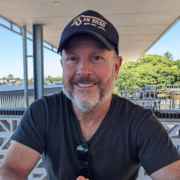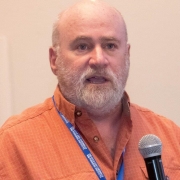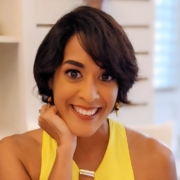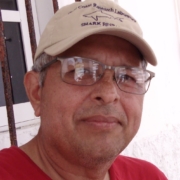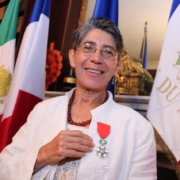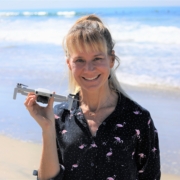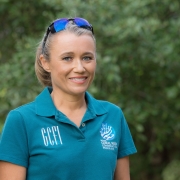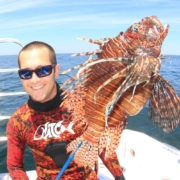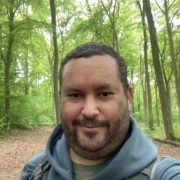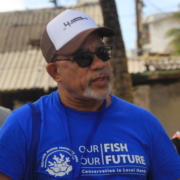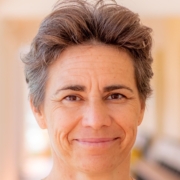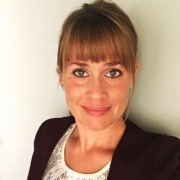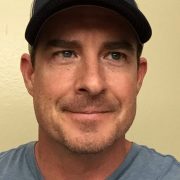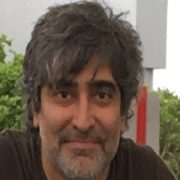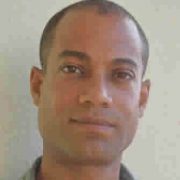Board of Directors
Eduardo Bone Moron
Chair
Eduardo (Lalo) brings 25 years of experience in conservation across Latin America, the Caribbean, the United States, and Europe. For the past eight years, he has concentrated on marine fisheries and ocean conservation in the Caribbean as Senior Manager of the Oceans and Fisheries Program at EDF, leading a multinational team to develop and implement innovative fisheries management projects in Cuba and the region.
Lalo has been an active participant at GCFI since 2017 and joined its Board in 2022, playing a key role in strengthening collaboration between EDF, GCFI, and other regional organizations. His efforts bridge cutting-edge science with practical management and community-driven action, advancing sustainable fisheries and policies that promote resilient coastal livelihoods. He works closely with managers and scientists to shape national and regional strategies, including initiatives to achieve 30×30 conservation targets, while integrating capacity building, alternative livelihoods, restoration, and effective communication into broader coastal resilience efforts.
As the new Chair of GCFI, Lalo is dedicated to fostering deeper collaboration among NGOs, academia, local communities, and stakeholders to strengthen marine management and drive innovative solutions for a thriving Caribbean. Now based in Brussels, he is eager to build stronger connections between the Caribbean and Europe, broadening opportunities for impactful partnerships.
Megan Davis
PhD
Vice Chair
Megan Davis, Ph.D. is a Research Professor and the Director for FAU’s Harbor Branch Queen Conch Lab program. For more than 40-years she has been studying the queen conch life cycle and innovating ways to save the species. She has become the world’s foremost expert on queen conch aquaculture and has designed, implemented, and operated community-based queen conch hatcheries throughout the Caribbean region. Her philosophy is to work in the communities with the fisherfolk and citizens to empower them to grow their own conch for restoration and conservation. She has served on several boards over the years and currently serves as a Bailey-Matthews National Shell Museum Trustee and Scientific Nutrition Advisory Council Member, Seafood Nutrition Partnership. Megan has been involved with Gulf and Caribbean Fisheries Institute since 1982. She previously served on the GCFI Board from 1986 – 1998. Megan is a current GCFI Board Member since 2021, and the Board’s Vice Chair since November 2024.
Martin Russell
Past Chair
Martin has been an active participant in GCFI meetings since 2000, a GCFI Board Director since 2013, and has been the Chair of the Board (2017 to 2020, and 2022 to 2024). Martin has been working for over 25 years on marine protected area and fisheries management in Australia’s oceans. He is the Manager of the Coral Sea Marine Park in the Australian Government and worked previously as a fisheries/MPA manager with the Great Barrier Reef Marine Park Authority. He is the Chair of Science and Conservation of Fish Aggregations (SCRFA), an NGO based in the USA with projects in the Pacific Ocean and Caribbean, and a global database of fish aggregations. Martin has an applied science degree in fisheries and has extensive research and management experience working on fish spawning aggregations, coral and reef fish.
Mel Goodwin, PhD
Treasurer
Formally trained as a marine biologist, Dr. Goodwin is responsible for operations, program development, and implementation of a nonprofit information services organization devoted to sustainable development. Major activities include development of public information programs to communicate information on sustainable development issues and approaches, developing professional training programs in sustainable development for design and building professionals, incorporating sustainability principles into public school buildings and curricula, anddevelopment of neighborhood-based land use plans for the cities of Charleston and North Charleston. He worked for fifteen years as Projects Director on sustainable development initiatives in the Eastern Caribbean sponsored by public and private organizations including the Canadian International Development Agency, Caribbean Conservation Association, Food and Agriculture Organization of the United Nations, Inter American Foundation, Jessie Smith Noyes Foundation, Rockefeller Brothers Fund, U. S. Agency for International Development, and World Wildlife Fund – U.S. Recent activities include authoring more than 100 outreach lesson plans for middle school and high school classes dealing with NOAA’s Ocean Exploration Program, National Ocean Service, and the Aquarius Project
Bob Glazer
Executive Director
Bob is recently retired from the Florida Fish and Wildlife Commissions’ Fish and Wildlife Research Institute where he served as the Principal Investigator of the queen conch research and restoration program in Marathon. His research focused on stock restoration, essential habitat, larval recruitment, endocrine disruption, marine fishery reserves, and stock structure. He has worked extensively on molluscan aquaculture for both commercial and restoration projects. In 1994 he received the first Florida Jaycees Outstanding Young Environmentalist award and in 2006 he was the first marine recipient of the Southeast Association of Fish and Wildlife Agencies Fishery Biologist of the Year. In 2018, he received the Director’s Award for his lifetime of achievement.
Bob also served as the Principal Investigator on a number of climate change adaptation projects. He developed the KeysMAP (Florida Keys Marine Adaptation Planning) program which uses scenarios to develop climate adaptation strategies, identifies triggerpoints for implementing the strategies, and develops monitoring program to identify when the triggerpoint is attained. He was the leader of the Florida FWC climate change Research and Monitoring workgroup. He also served as the chair of the Monroe County Climate Change Advisory Committee whose objective is to make recommendations to the Board of County Commissioners on how best to adapt to a changing climate in the Florida Keys. In 2016 he received the Leadership Award Honorable Mention of the National Fish, Wildlife, and Plants Climate Adaptation Strategy.
Bob lives in Marathon, Florida in the Florida Keys with his wife Merlou and golden retriever Grace. When not working on GCFI activities, he is busy in his extensive tropical garden building ecosystems.
Fadilah Ali
Assistant Executive Director
Fadilah Ali is an ecologist with a specialty in invasive species biology, control and management. Originally from Trinidad and Tobago, she received an M. Env. Sci. in Biodiversity and Conservation as well as an M. Phil in Ocean and Earth Science from the University of Southampton. During her time in Southampton she conducted research on biological indicators for water quality as well as the distribution and impact of marine debris on British coastlines. She is currently the Project Manager for the Caribbean Node of the Global Partnership on Marine Litter which GCFI is a co-host of together with UN Environment. Fadilah was previously heavily involved in research on the lionfish invasion within the Dutch Caribbean with a focus on their general and feeding ecology. To date she has analysed the stomach contents of more than 12,000 lionfish and has conducted research and worked as a consultant in many islands throughout the Caribbean.
Fadilah first became involved with GCFI in 2011 where she won the student award for best oral presentation and has served on the GCFI Board of Directors since 2014.
Directors
Alejandro Acosta
PhD
Alejandro works for the Fish and Wildlife Conservation Commission’s Fish and Wildlife Research Institute in Marathon. He is the team leader and research coordinator for the FWC/SFRL finfish program in the Florida Keys. His interests include fish biology and community ecology, especially the relationships between habitat structure and the distribution, abundance and connectivity of reef fishes. His work has examined tropical reef fisheries, community structure, fish spawning aggregations and stock assessment of reef, mangrove and estuarine fishes. He is actively involved in an annual multi-species visual censuses and juvenile seine surveys in near shore waters of the Florida Keys. Alejandro is actively involved in regional programs in the Caribbean region. Previously he has work in Venezuela and in the Pacific. Alejandro has been Chairman and Vice-chairman of GCFI and has been the Chair of the Program Committee for the last 8 years
Alfonso Aguilar-Perera
PhD
Alfonso Aguilar-Perera is a marine science professor since 2006 with the Departamento de Recursos Marinos Tropicales of the Universidad Autónoma de Yucatán, in Mérida, Yucatán, México. He teaches Coastal Conservation and Management, Conservation of reef fishes, Marine protected areas design, and Science Communication. He received his MSc and Ph.D. from the University of Puerto Rico, Mayagüez Campus, and he did a postdoc in UPRM supported by the Caribbean Coral Reef Institute. His research addresses the conservation biology of grouper (Epinephelidae) aggregations in the Mexican Caribbean, and recently in the Gulf of Mexico. Also, he investigates the invasion of the red lionfish off the northern coast of the Yucatan Peninsula, in the Southern Gulf of Mexico. He is member of the IUCN groupers and wrasses specialist group and the Science for Conservation of Reef Fish Aggregations (SCRFA). He has been active member of the GCFI Students Award since 2009. For further information on his research and teaching interests you can view this link or his SCOPUS profile and Publons Profile
Dalila Aldana Aranda
PhD
Dalila Aldana Aranda is Profesor at CINVESTAV-IPN (Centro de Investigación y de Estudios Avanzados del Instituto Politécnico Nacional), a Research Center in Mexico. My research is mainly in nutrition, reproduction and aquaculture of marine Molluscs. I have been working extensively in conch of the genus Strombus (S. gigas, S. costatus, S. pugilis), also in an endemic conch from Yucatan Peninsula, and oyster Crassotrea virginica. I received my Ph.D. in Biology Oceanography and Aquaculture from University of West Bretagne, Brest, France, with Honorific Mention. In 1993, I received a second Ph. D. in populations Biology, at University de Marsella, France, receiving also an honorific mention. I have written over 70 scientific papers in my field, and I have produced 6 books of environmental education related to protect marine species. I have supervised 4 Ph. D., and 10 Master students. From 1997 to 2001, I coordinated the Iberoamerican Network of mollucs aquaculture from Iberoamerican Program of Science and Technology for Development (CYTED). In 2002, I was chair-woman of the Marine Laboratories Association in the Caribbean. In 2006, the Institute of Gulf and Caribbean Fisheries nominated me as their chair person, becoming the first woman in this Institute that received this nomination. Since June 2008, I am chair-woman of the Mexican Academy of Science (Southeast).
Kim Baldwin
PhD
Kim Baldwin is a marine ecologist and fisheries biologist from Barbados with over 20 years of experience conducting applied research, teaching and training in the Caribbean. She specializes in participatory approaches that integrate science, technology, and local knowledge to support informed environmental management and decision-making.
As Director of Marine Spatial Information Solutions, Kim has led numerous regional projects focusing on marine mapping, fisheries monitoring, disaster risk management, and coastal resilience. Her innovative approach using drones and geospatial technologies has advanced ecosystem-based resource management across the region.
A long-standing member of GCFI since 2002, Kim is passionate about fostering collaborative partnerships and empowering stakeholders with the tools and knowledge to sustainably manage marine resources.
Emma Doyle
Emma was previously Vice Chair of GCFI and is in her third term as a GCFI board member. She joined GCFI’s board in 2013 at GCFI66 and was the founding chair of GCFI’s Communications Committee. Emma coordinates ‘MPAConnect’ – a learning network of 32 marine protected areas in 11 Caribbean countries and territories that is managed through a partnership between GCFI and NOAA’s Coral Reef Conservation Program. Emma is also Senior Advisor to the Wider Caribbean Sea Turtle Conservation Network (WIDECAST) on marine protected areas and biodiversity monitoring, Technical Advisor on marine protected area management to Sustainable Grenadines Inc. and a member of the Board of Directors of Ocean Spirits Inc. in Grenada. She has worked in international environmental cooperation and grant management in Latin America and the Caribbean for 20 years. Emma is Australian, she studied coastal zone management at Sydney University and has a Master of Science in environmental management from Wageningen University in the Netherlands.
Alex Fogg
Alex Fogg first attended GCFI in 2013 while in graduate school at the University of Southern Mississippi
and has presented at every GCFI meeting since then. He received a number of GCFI awards and
scholarships including the Ron Schmied scholarship (2013), student travel award (2014) and the
Outstanding Student Award (2017). Fogg was also selected to host the 2020 GCFI meeting in Destin –
Fort Walton Beach, Florida but due to COVID-19, the in-person meeting did not occur until November
2022. Currently, he manages Coastal Resources in Destin-Fort Walton Beach, Florida and a team of
three people. Responsibilities include fisheries dependent and independent monitoring, habitat
creation and restoration, shoreline stabilization and renourishment, water quality monitoring and
invasive species control, to name a few. Many of these projects and responsibilities rely on strong
relationships and collaborations with dozens of universities, government and non-government agencies
throughout the region.
Kelly Kingon
PhD
Kelly is an Assistant Professor at the University of Trinidad and Tobago Centre for Maritime and Ocean Studies, and involved in undergraduate and graduate teaching programs. She has been an active participant in GCFI since attending as a graduate student in 2009, and now encourages her own students to attend. Kelly has a broad range of experience working on a variety of topics across a range of habitats in the Gulf of Mexico and Caribbean. Her research background includes artificial reefs, habitat ecology, invasive species, sargassum, turtles, fish ecology and fisheries. She has worked with local fishers on several of these projects and understands the value that comes from collaboration across sectors, so she is keen to contribute to the Fisheries for Fishers Program. Kelly’s enthusiasm for participatory marine conservation and her contacts throughout the region would provide a valuable contribution to the GCFI Board.
Lindy Knowles
Cecil Marquez
Cecil Marquez is an artisanal fisher from Gouyave, Grenada. In 2018, he received GCFI’s Gladding Memorial Award in recognition of his contributions to sustainable management of Grenada’s fisheries and marine resources. Cecil is an inspirational leader for many young fishers; they have followed his lead by adopting the use of manual longlines from small vessels to target swordfish and yellowfin tuna. More recently, Cecil popularized “Safety at Sea” by training and equipping fishers with safety equipment. Cecil was instrumental in establishing the Gouyave Marine Protected Area. Subsequently, the Grenada Fisheries Division delegated its management to the local community. Since 2019, Cecil has worked with GCFI to reduce abandoned, lost, discarded fishing gear (ALDFG) and distributed information to fish houses across Grenada. He attended a workshop in Panama representing GCFI where he learned methods to recover lost gear. Cecil continues to be a leader in the GCFI Fisheries for Fishers Initiative.
Clare Morrall
PhD
Clare Morrall is a well-respected Marine Scientist with strong professional connections through the Caribbean region and internationally. Clare serves as President of NGO Ocean Spirits and is Deputy Director of the Association of Marine Laboratories of the Caribbean (AMLC). Clare is Professor Emerita in the Department of Biology, Ecology and Conservation at St. George’s University in Grenda were she worked for over two decades teaching marine science to Caribbean and International undergraduates. and is a keen member of Grenada’s Sustainable Development Council.
Clare has three decades of expertise and hands on experience with environmental conservation, sustainable development, and climate change. Project experience includes research on protected area development, fisheries resource management, tropical coastal and near shore ecosystem health, microplastic distribution in the environment and biological impact, marine turtle monitoring, conservation and outreach, pelagic sargassum monitoring and utilisation, biodiversity conservation and many aspects of ecosystem health.
Ruth Perry
PhD
Dr. Ruth Perry joined Royal Dutch Shell as a Marine Scientist and Regulatory Policy Specialist in 2014. Ruth integrates marine science and ocean technology into regulatory policy advocacy and decision-making in the areas of marine sound, marine spatial planning, renewable offshore energies, ocean observing, and marine mammal and life science for Shell’s offshore energy projects in the Americas. Ruth is also responsible for Shell’s U.S. public-private science and data collaborations to improve energy industry and the communities’ knowledge of the offshore marine environment. In addition, she advises on environmental permitting strategy and is currently supporting Shell’s US offshore wind projects in this capacity. As part of these responsibilities, she works with other ocean users to create collaborative and cooperative partnerships to advance regional research and monitoring. One recent partnership is serving as a founding member of an independent organization dedicated to providing for and advancing regional research and monitoring of fisheries and offshore wind interactions in federal waters – the Responsible Offshore Science Alliance.
Ruth has nearly 15 years of ocean technology research and system implementation, environmental permitting advising, and ocean policy and regulatory analysis and advocacy. She has a number of peer-reviewed, book chapter and media publications, including Popular Mechanics. She also serves as a member of many offshore national scientific steering committees and Boards, a few including the National Academy of Sciences Ocean Studies Board and recently the National Oceanic Atmospheric Administration (NOAA) Science Advisory Board, Integrated Ocean Observing Science Advisory Committee and Consortium of Ocean Leadership Board of Trustees. She earned a doctorate in Oceanography from Texas A&M University in 2013 and worked for Texas A&M University on developing their autonomous ocean observing programs and the Gulf of Mexico Ocean Observing System in building the Gulf’s autonomous program and increasing private industries’ involvement in ocean observations prior to joining Shell.
Joanna Pitt
PhD
Vice Chair
Joanna is the Marine Resources Officer for the Bermuda Government’s Department of Environment and Natural Resources, a post she has held since 2008. Prior to that, she worked at the Bermuda Institute of Ocean Sciences (BIOS), formerly the Bermuda Biological Station for Research. Her research experience has covered everything from the ecology and health of seagrasses, mangroves and corals (including contributing to the CariCoMP Program / GCRMN) to the biology, ecology and management of both coral reef and pelagic fishes, as well as assessments of marine protected areas and the recreational fishery in Bermuda. In addition to working on topics relevant to the development of management plans for various local commercial fishery species, her recent research has focused on the dynamics and management of grouper spawning aggregations and the biology, ecology and control of the invasive lionfish in Bermuda. A native Bermudian, Joanna has a B.Sc. from Southampton University in the U.K., and a Ph.D. from James Cook University in Townsville, Australia and currently serves as an Associate Editor for the GCFI affiliated journal Gulf and Caribbean Research.
Brice Semmens
PhD
Brice Semmens is an Associate Professor at the Scripps Institution of Oceanography, University of California, San Diego. Prior to joining the faculty at Scripps, Brice was a National Research Council Postdoctoral Fellow at the Northwest Fisheries Science Center. Brice’s research centers on fisheries science and quantitative tools in fisheries and conservation. He is currently the Director of the California Cooperative Oceanic Fisheries Investigations (CalCOFI), and a co-PI for the Center for the Advancement of Population Assessment Methodologies (CAPAM). In the Caribbean, Brice coordinates the Grouper Moon Project, a cooperative long-term spawning aggregation monitoring program in the Cayman Islands, jointly run by the Reef Environmental Education Foundation (REEF) and the Cayman Islands Department of Environment (CIDOE). Brice joined the GCFI Board of Directors in 2015 and has been involved with GCFI since 2003 (when he won a student presentation award), and gave the keynote address for the 69th GCFI Cayman Islands conference in 2016.
Manoj Shivlani
PhD
Manoj Shivlani is a marine research scientist and holds a PhD from Florida International University, where he did his dissertation work on long-term changes in Florida Keys commercial fishing communities, and a master’s degree in marine affairs and policy from the University of Miami. His research interests are in the human dimensions of coastal and marine management, especially in marine resource and assessment peer review, fisheries, tourism, and marine protected areas. Shivlani has conducted research in the western Atlantic and Caribbean, the Gulf of Mexico, and the South Atlantic, including the development of the Bahamas spiny lobster and queen conch fishery management plans, fisheries costs and returns studies in the US Caribbean, socioeconomic valuation of marine protected areas and fishery spawning closures in Puerto Rico, a commercial fisher characterization study towards the development of the Dry Tortugas Ecological Reserve, central Florida red snapper fisher surveys on social networks, long-term monitoring of commercial fishery uses in the Florida Keys National Marine Sanctuary, a characterization of Southeast Florida Coral Reef Initiative area stakeholders, wastewater management treatment options in the Caribbean, and evaluation of water quality perceptions of Biscayne Bay.
Henri Valles
PhD
Henri grew up in Spain and Haiti. His strong interest in biology, led him to pursue a BSc in Biology at the University of Oviedo (Spain), an MSc in Natural Resource Management at the University of the West Indies (Barbados) and a PhD in Biology at McGill University (Canada). His post-graduate work focused on better understanding the recruitment dynamics of coral reef fishes, with his field work taking place in the islands of St Lucia and Barbados. After his post-graduate work, Henri worked with the Fisheries Department of Haiti for a couple of years and subsequently returned to Barbados to take a position as a Lecturer in Ecology at the University of the West Indies at Cave Hill, where he is based now. Beyond teaching and supervising students, much of his current work revolves around improving the management of coral reefs and small-scale fisheries in the insular Caribbean. Because of his diverse background, Henri is fluent in Spanish, French, English, and Haitian Creole.

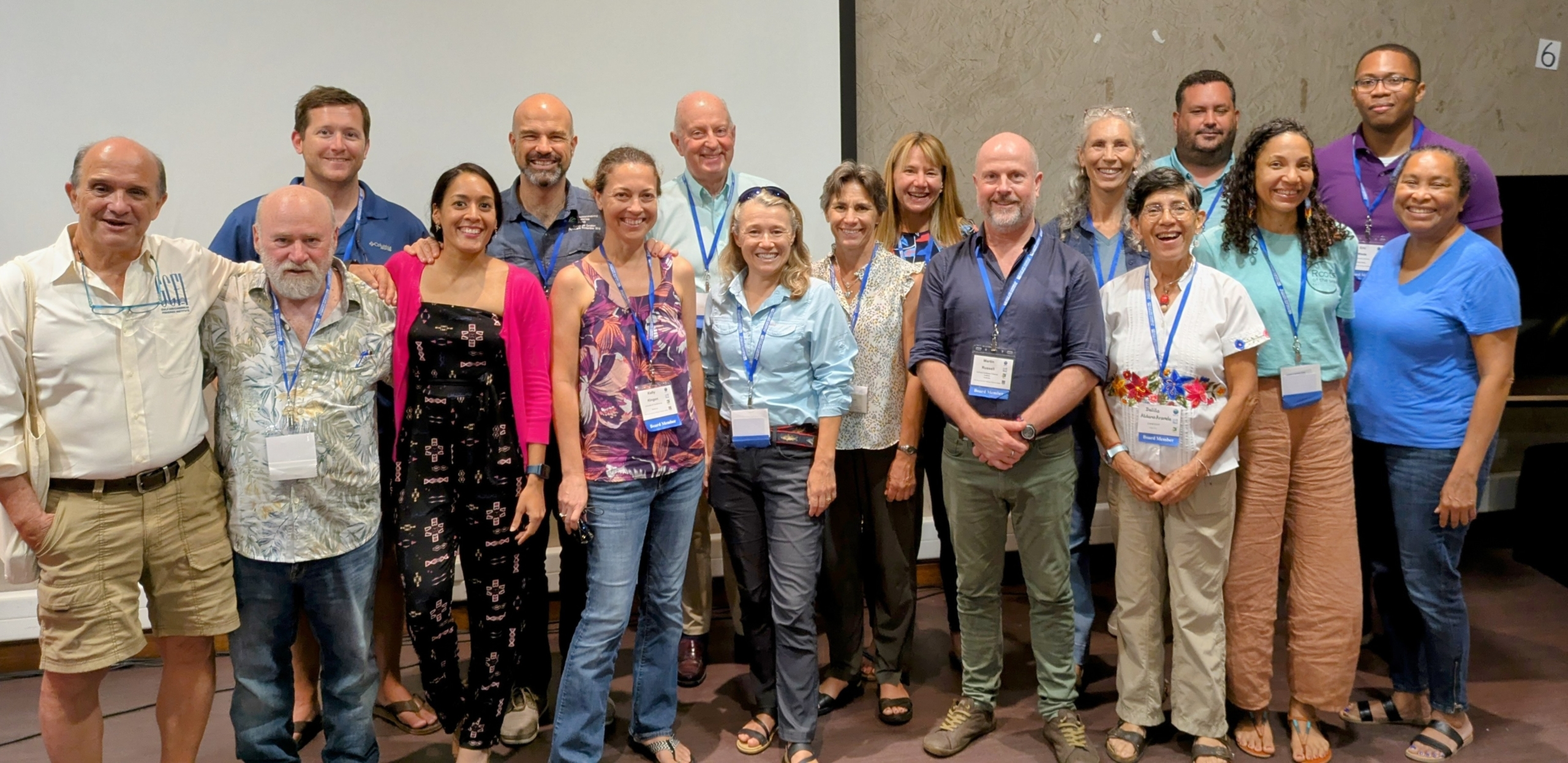
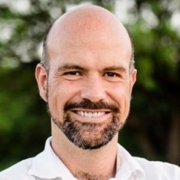
![Portrait photo[26] (1)](https://www.gcfi.org/wp-content/uploads/2024/11/Portrait-photo26-1-180x180.jpg)
